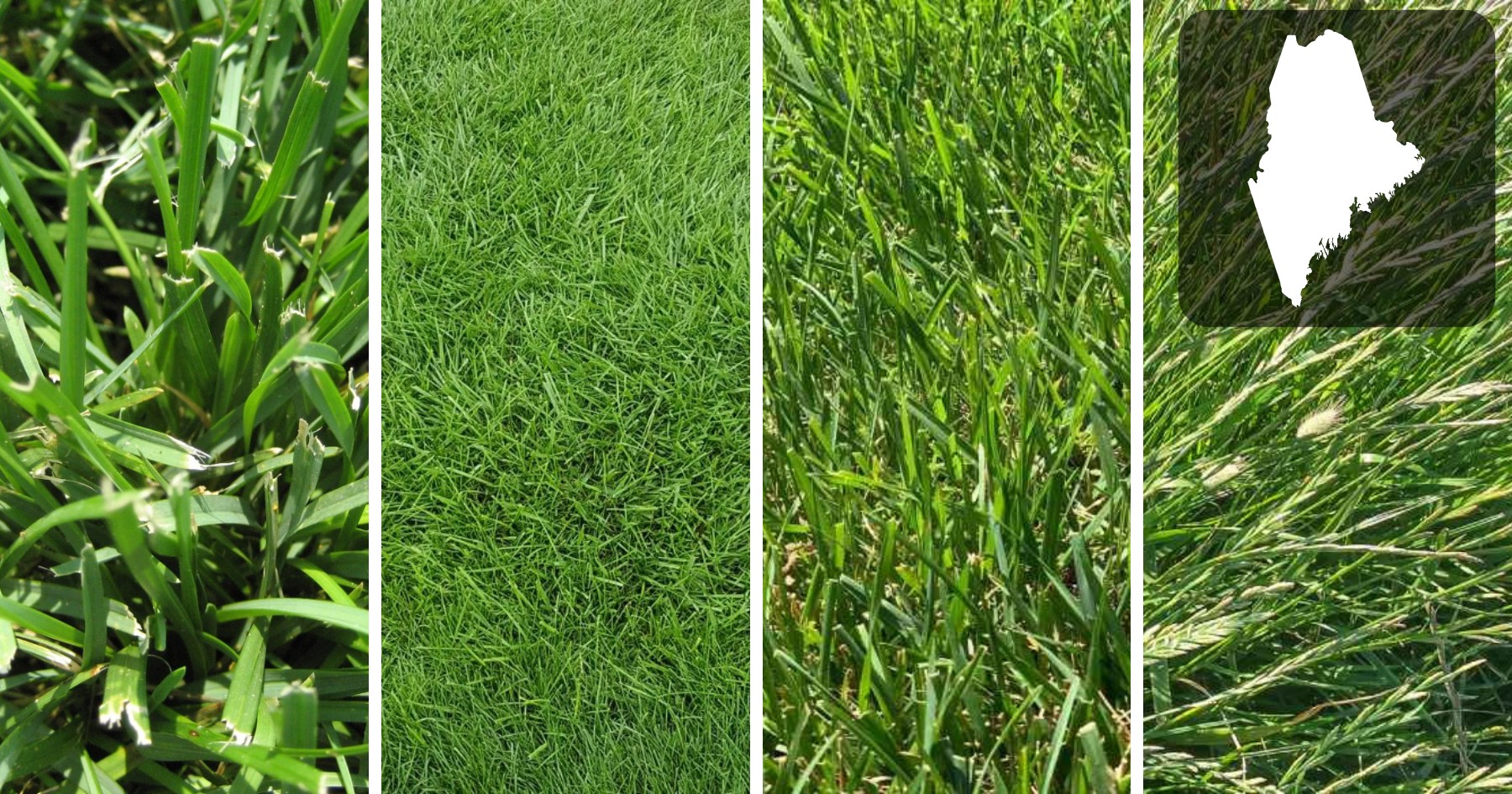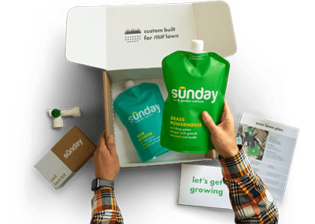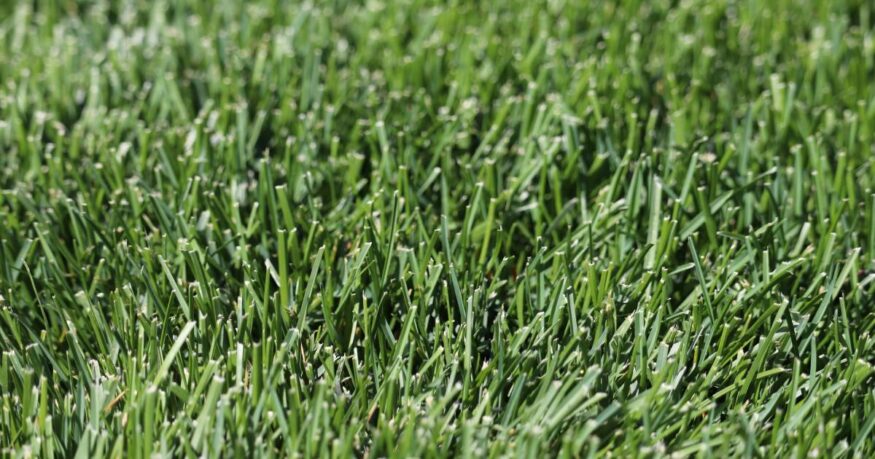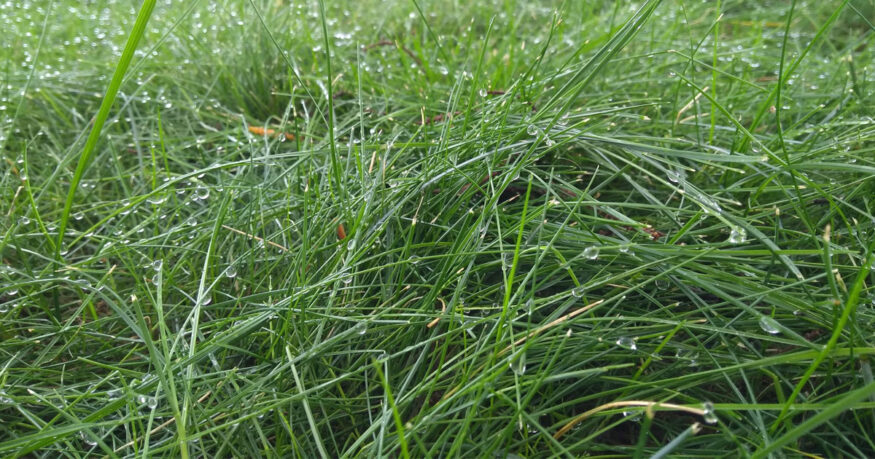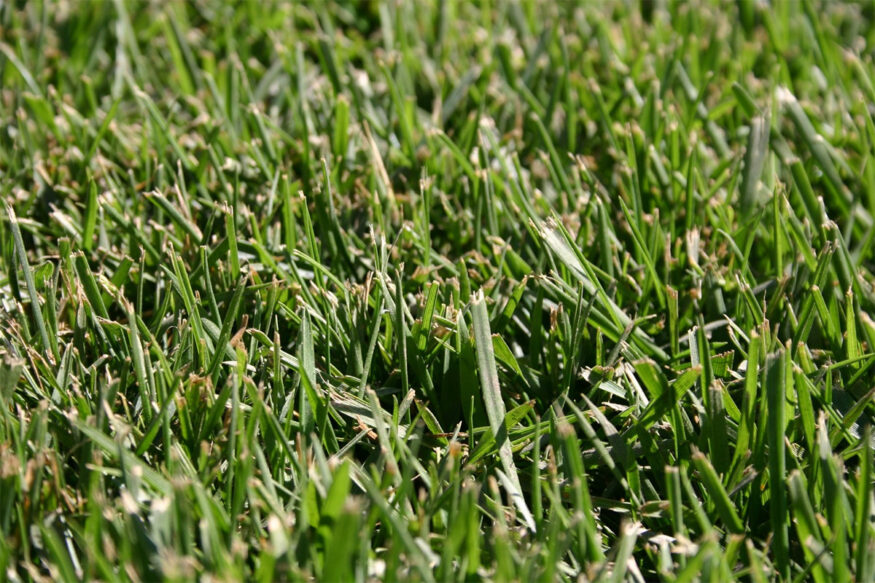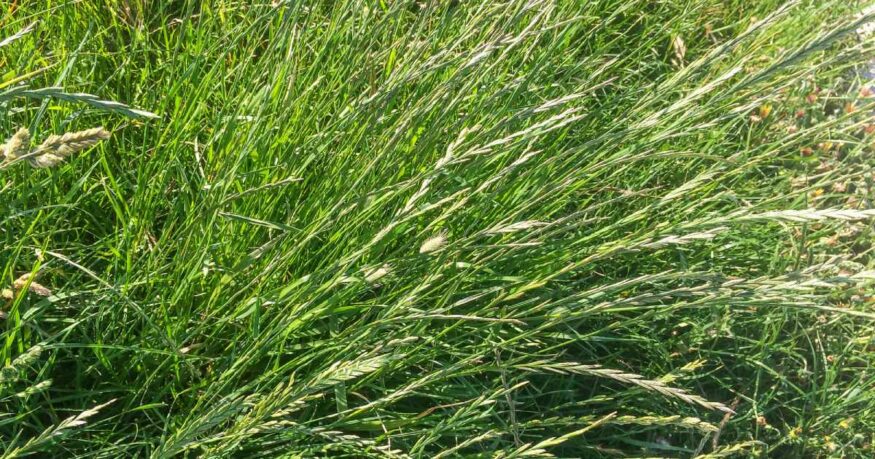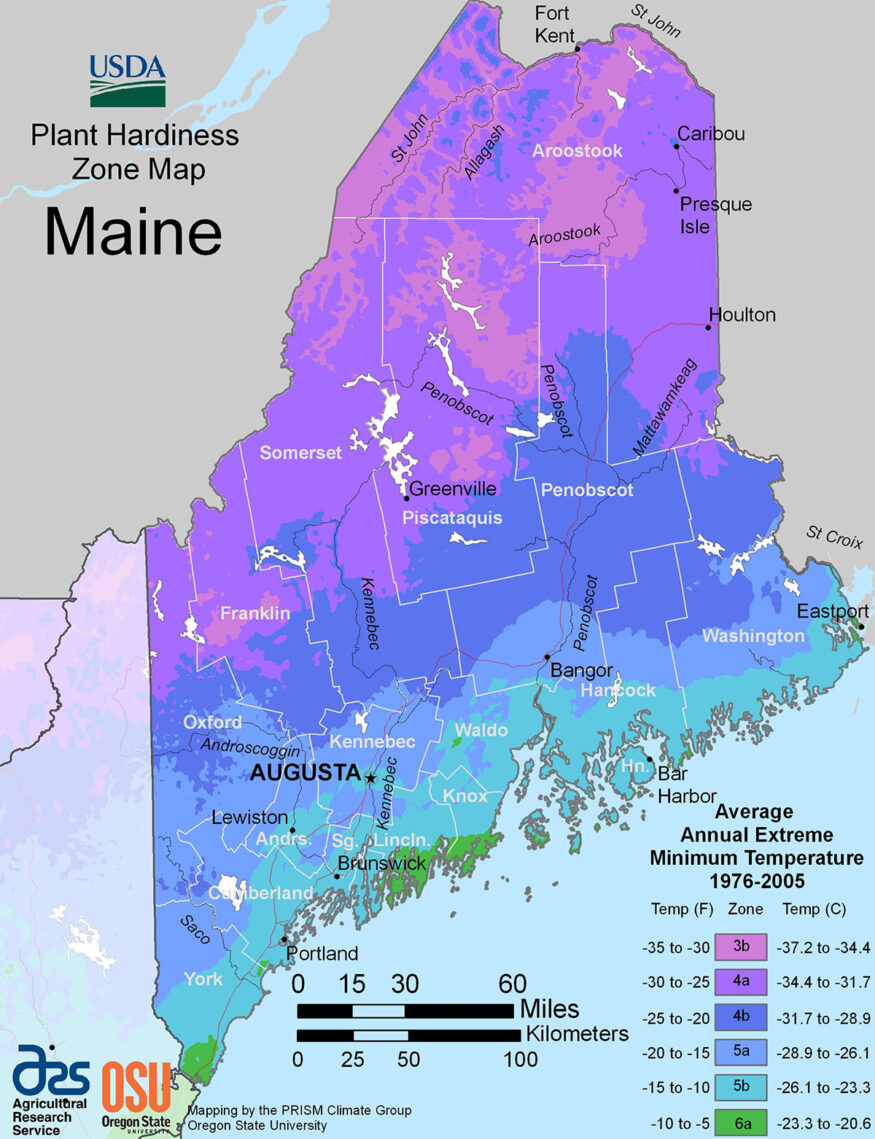Are you ready to transform your Maine lawn into a lush green paradise? Look no further, because I’ve got the inside scoop on the best grass seed for your region. While Kentucky Bluegrass is a popular choice, this article will delve deeper into the options available, ensuring you make an informed decision.
Growing a lawn in Maine comes with its fair share of challenges, from the harsh winters to the acidic soil conditions, but fear not! With the right grass seed, you can overcome these obstacles and enjoy a beautiful, thriving lawn year-round.
So, if you’re eager to learn about the top grass seed varieties for Maine and how to tackle those common lawn woes, keep reading. Your dream lawn awaits!
Looking for the best grass seed for your region?
Our smart lawn plans are designed to work perfectly with your local soil and climate conditions, without any of the toxic stuff.
Use the code EHG20 for an instant $20 discount!
- Personalized lawn care: Custom lawn plans based on soil analysis, climate data, and your specific lawn needs.
- Convenience with a conscience: Products that are not only easy to use but also safe for you, your pets, and the planet.
- Science-backed formulas: Bio-based formulas contain effective, natural ingredients like seaweed, molasses, and iron.
- Expert support: Get one-on-one guidance from a real person and rest easy with Sunday's satisfaction guarantee.
[ez-toc]
Kentucky Bluegrass
| Also Known As | Poa pratensis L. |
| Type of Grass | Cool season perennial |
| Optimal Zones | Northern cool season zone, transition zones |
| Root Structure | Shallow |
| Winter Hardiness | Excellent |
| Shade Tolerance | Poor to Good |
| Water Requirements | High |
| Drought Tolerance | Poor |
| Self Repair Capacity | Excellent |
| Overall Maintenance Requirements | High |
When looking for the best grass seed for Maine, there are several options to consider. However, one variety that stands out in the crowd is Kentucky Bluegrass. This particular seed grass is a great choice if you live in Maine due to its strength and adaptability.
Kentucky bluegrass, as a native grass, encases several attributes that make it a suitable selection. It can survive cold winters and still look spectacular in the spring. This is essential due to Maine’s notorious cold winters.
What makes Kentucky bluegrass an ideal grass seed for Maine is its high tolerance to heavy traffic. Whether you have children playing in the yard or guests coming by for a BBQ, it can withstand the wear and tear. This makes it not just a practical choice, but also a beautiful one.
Another advantage to choose Kentucky bluegrass as your seed for your Maine garden is its remarkable disease and pest resistance. It’s capable of fending off many common turf diseases that can wreak havoc on other types of grass. This implies less time and energy spent on maintenance and more time enjoying your lush, green lawn.
Kentucky bluegrass also does extremely well in a mixture. So if you’re wanting a thicker, lusher lawn, consider adding it to some other seeds. By doing this, you can create just the right blend for your personal needs and soil conditions.
Keep in mind, while Kentucky bluegrass might be the best grass seed for Maine and a great choice for your garden, it still requires adequate care and nurturing. Regular watering, fertilizing, and mowing are all crucial elements in helping your lawn be at its best. Stick to a lawn care schedule and don’t cut corners; your effort will pay off in the end with a thick, green, luscious lawn.
So if you are planning on diving into the world of garden seeds for your lawn, take the time to consider Kentucky bluegrass. It has a lot to offer and could be just the right fit for you and your Maine garden. After all, your garden is more than just a plot of land; it’s a reflection of your tastes and standards. And, with Kentucky Bluegrass at the heart of it all, you can enjoy a robust, attractive and resilient green space that many would envy.
Remember, the key to a good looking lawn lies in choosing the right grass seed. It may take some time and effort to sort through the options, but when you choose correctly, the payoff can be substantial. So take a chance on Kentucky Bluegrass; it could prove to be the best decision you’ve ever made for your Maine garden.
Fine Fescue Grass Seed
| Also Known As | Hard fescue, strong creeping red fescue, slender creeping red fescue, sheep fescue, chewings fescue; Festuca L. |
| Type of Grass | Cool season perennial |
| Optimal Zones | Northern zones |
| Root Structure | Medium |
| Winter Hardiness | Excellent |
| Shade Tolerance | Excellent |
| Water Requirements | Medium to High |
| Drought Tolerance | Excellent |
| Self Repair Capacity | Limited |
| Overall Maintenance Requirements | Low |
If you’re a Maine gardener, there’s a good chance you’ve come across fine fescue, the delicate, but resilient grass species often used for thickening sun-challenged lawns. As a cold-hardy species, it’s an excellent choice for Maine’s diverse climate. You’ll often find fescue in grass seed mixes alongside the likes of Kentucky Bluegrass, forming a powerful combination that can withstand Maine’s inclement weather.
Fescue is a cool-season grass, which means it’s at its best in the cooler early spring and fall months. It thrives in northerly climates like Maine, where heat isn’t such a significant issue. That said, if there’s a heatwave, as rare as they might be, you won’t have to worry too much. Fescue can handle brief periods of hot, dry weather, though, be sure to give it a drink now and then to keep it vibrant.
But exactly what sets fescue apart from other grass species? One of the key characteristics of fescue grass is its low maintenance nature. For those of you who don’t have the luxury of time to meticulously care for your grass, this is your answer. You’ll find that fescue grass doesn’t need as much fertilization as other species and can also withstand heavy foot traffic, a useful trait if you have children or pets.
Fescue seeds are also very robust and fast-growing. In ideal conditions, you could see germination in as little as five to seven days. What’s more, these seeds tend to establish quickly, filling in your lawn and giving it a lush, thick appearance. This factor makes it a popular choice for those looking to form a robust, carpet-like lawn that’s equally at home on golf courses as it is in domestic gardens.
Given the hardy nature of the grass, it’s not uncommon to find fescue in seed mixes, too. These blends typically couple fescue with other types of grass seeds to offer the best of multiple varieties. The outcome is a multiform lawn that can endure a range of conditions and uses.
There are several types of fescue to pick from, as well. If you’re living in Maine, you might want to consider creeping red fescue or chewings fescue, both of which thrive in sandy, acidic soil that’s typical in the state. Alternatively, hard fescue can resist drought, making it ideal if your area often experiences dry spells.
Fine fescue as a great option for your lawn. Not only does it flourish in this State’s varied weather and soil conditions, but it also offers a low-maintenance, durable lawn that can handle heavy activity. So whether you’re sowing a brand new lawn or looking to breathe new life into your existing one, give fescue a chance and enjoy a lush, green lawn throughout the seasons.
Looking for the best grass seed for your region?
Our smart lawn plans are designed to work perfectly with your local soil and climate conditions, without any of the toxic stuff.
Use the code EHG20 for an instant $20 discount!
- Personalized lawn care: Custom lawn plans based on soil analysis, climate data, and your specific lawn needs.
- Convenience with a conscience: Products that are not only easy to use but also safe for you, your pets, and the planet.
- Science-backed formulas: Bio-based formulas contain effective, natural ingredients like seaweed, molasses, and iron.
- Expert support: Get one-on-one guidance from a real person and rest easy with Sunday's satisfaction guarantee.
Tall Fescue Seed
| Also Known As | Lolium arundinaceum (formerly Festuca arundinacea) |
| Type of Grass | Cool season perennial |
| Optimal Zones | Northern through transition zones |
| Root Structure | Deep |
| Winter Hardiness | Excellent |
| Shade Tolerance | High |
| Water Requirements | Medium to High |
| Drought Tolerance | Excellent |
| Self Repair Capacity | Limited |
| Overall Maintenance Requirements | Low |
Now let’s take a look at Tall Fescue, a grass seed that’s perfect for Maine’s unique climate and soil conditions. This grass seed is certainly one of the best, delivering excellent results to Maine gardeners each year. You’ve heard about the pros of Kentucky Bluegrass and Fine Fescue, both stellar choices, but Tall Fescue has a unique set of benefits.
So, what makes Tall Fescue one of the best grass seed options for Maine gardens? Well, it’s all about durability and adaptability. Robust grasses like Tall Fescue can perform exceptionally well in Maine’s challenging soil conditions, making it one of the best seeds for Maine. Further, the grass seed also copes well with foot traffic, making it perfect if your outdoor space gets a lot of action from kids or pets.
Being native to Europe, Tall Fescue has adapted to numerous climates, making this grass seed extremely versatile. Even if the weather in Maine shoots to extreme heat or noses down to freezing temperatures, this grass seed stands its ground. That’s why Tall Fescue has become one of the best grasses for Maine gardens, renowned for its capability to weather different climates.
You’ll find that unlike other grass seeds, Tall Fescue needs lower levels of maintenance. It’s low-maintenance requirements, combined with its durability, make it one of the best grass seed options available. While some seeds might need constant watering or mowing, Tall Fescue can boldly go through summer with relatively less water, reducing your tasks while maintaining its luscious green appearance.
However, it’s not all about being low-maintenance. Even as one of the best grass seeds, it needs some attention from you. Applying fertilizers rich in nitrogen helps ensure the Tall Fescue grasses retain their rich green hue. Consider soil testing before the initial planting phase to ascertain any amendments necessary for making your soil suitable for this grass seed. Remember, the main goal is to create the best environment for your grass seed.
One feature that likely puts Tall Fescue in the top spot as the best grass seed for Maine is its ability to resist diseases and pests, a common problem faced by many Maine gardeners. This grass seed has an inherent tolerance to major lawn diseases like Brown Patch, thereby increasing its sustainability.
To recap, Tall Fescue stands heads and shoulders above other grasses due to its exceptional durability, adaptability, and resistance to diseases. This grass seed outperforms many others in Maine’s conditions, making it one of the best grass seeds you can choose for your Maine garden. Its lower maintenance need and robust nature allow it to retain its lush green even as conditions change, winning the hearts of gardeners and lawn enthusiasts across Maine. It’s worth planting Tall Fescue in your Maine garden and reaping the benefits of this fantastic grass seed.
Perennial Ryegrass in Maine
| Also Known As | Lolium perenne L. |
| Type of Grass | Cool season perennial |
| Optimal Zones | Mild northern zones |
| Root Structure | Deep |
| Winter Hardiness | Good to excellent |
| Shade Tolerance | Moderate |
| Water Requirements | High |
| Drought Tolerance | Good |
| Self Repair Capacity | Excellent wear tolerance |
| Overall Maintenance Requirements | Moderate to high |
Let’s delve into the world of perennial ryegrass, one of the top choices for Maine gardens. Now, the perennial ryegrass, as the name suggests, is, in a way, perennial. It’s not a one-season wonder, disappearing after a brief flurry of growth. Instead, the perennial ryegrass stands strong, transforming your home lawn into a lush green oasis year after year.
So, why is the perennial ryegrass so popular? Well, there are several reasons. One of the key attributes of this grass seed is its exceptional resistance to cold. Now, as any Maine resident will tell you, winter can be harsh here. With other types of grass seed, that could mean a lawn that’s left looking barren and brown. But with perennial ryegrass, your home lawn will retain that verdant, vibrant green hue even during the colder months.
But it’s not just about withstanding winter’s wrath. Perennial ryegrass also has a fast germination speed, which is a bonus when you’re eager to see your home lawn start sprouting. Once sown, the grass seed quickly takes root and establishes itself, helping to suppress weeds and requiring less maintenance than other types of grass seed.
This grass seed isn’t too picky about soil, either. While it certainly appreciates fertile, well-draining ground, perennial ryegrass can also tolerate a range of soils, making it a versatile choice for your home lawn. Remember, the success of any grass seed is ultimately determined by the care it receives, and perennial ryegrass is no exception. Regular watering, mowing, and a good-quality lawn feed can work wonders in keeping your grass seed healthy and your lawn looking lush.
Apart from Kentucky Bluegrass, Fine Fescue, and Tall Fescue mentioned earlier in the article, perennial ryegrass also offers an excellent choice as a cool-season grass seed for Maine home lawns. With its resilient nature and overall adaptability, it’s not just another grass seed you’d find at any store; this is a seed that’s designed to thrive in Maine conditions. It makes sense then to pick perennial ryegrass as the mainstay of your home lawn, ensuring a vibrant, green carpet of grass that’ll be the envy of your neighborhood.
When it comes to choosing grass seed for your Maine home lawn, your options are vast. But one type of seed stands out from the rest – the perennial ryegrass. Resistant to the cold, quick to germinate, and possessing a rare adaptability to various soils, the perennial ryegrass is a premium choice. So if you want a durable and reliable grass seed that promises a lush, verdant lawn throughout the year – perennial ryegrass it is. Trust us; your Maine home lawn will never look the same again.
Learn More: Find the right grass for your state with our in-depth guides.
Climate and Growing Challenges For Lawns in Maine
Maine’s cooler climate and season pose a unique set of challenges for those who wish to maintain a vibrant, green lawn. A noticeable requirement for lawn care in this region is to understand the type of soil and its ability to support different kinds of grass seeds.
Getting familiar with your soil’s condition is essential as the soil is the primary source of nutrients for your lawn. High quality soil is the foundation upon which you lay your sod, and proper soil care ensures that your lawn will thrive, no matter how harsh the conditions may become.
Climate
For creating the ideal Maine gardens, understanding Maine’s climate is paramount. Known for its cool season climate, Maine is a state that presents unique challenges and opportunities. On the one hand, the cool temperatures can present difficulties for some grass types that prefer warmer climates. But for the cool season grass varieties like Kentucky Bluegrass, Fine Fescue, Tall Fescue, and Perennial Ryegrass, Maine’s climate is a match made in heaven.
Maine’s climate is classified in the cool season area, meaning the grass’s growing season primarily occurs during mid-fall to mid-spring. Because of this, the best time to plant grass seed in Maine is typically either in late summer or early fall. This allows the seeds plenty of time to establish strong roots before the high winter temperatures set in. Maine’s climate in the southwest part of the state has a slightly longer growing season due to its coastal influence, extending into the early summer months.
However, care must be taken in this area, as the high summer temperatures and humid conditions can lead to diseases in cool-season grasses. Proper care, including appropriate watering and fertilization, can help prevent such issues. Depending on the grass variety, different care measures may be required. The fine texture of Kentucky Bluegrass, for example, necessitates regular watering and fertilization, while the sturdy Tall Fescue can survive less frequent care.
The higher elevations in Maine present a different set of challenges. The temperatures here can be quite harsh, with high winds, and high snowfall amounts during the winter. This type of climate can present challenges for certain grasses, but fine-textured varieties such as Fine Fescue and Perennial Ryegrass tend to be more resilient in these conditions.
Furthermore, Maine, particularly the southwest area, experiences a rather high amount of rainfall, especially in the mid through late growing season. This can lead to overwatering if additional irrigation is applied without proper consideration. Nonetheless, for most cool-season grasses, this high rainfall can prove beneficial, promoting healthy growth and reducing the need for additional watering. However, care should be taken to avoid waterlogging, which can lead to root rot and other diseases.
The use of sod in addition to seed can prove beneficial in Maine’s cool season climate as it can quickly establish a mature, thick lawn, particularly in the high rainfall areas. Sods are essentially grass that has been grown elsewhere, then transplitted to your yard, providing an instant lawn. Yet, it may require a different level of care, including regular watering until it establishes.
Lastly, you might want to consider a mix of grasses for the Maine climate. Different grass varieties have unique strengths and weaknesses, and a blend can help balance these out, providing a more robust and resilient lawn. In a cool season climate, a mix of Kentucky Bluegrass, Fine Fescue, and Perennial Ryegrass can offer excellent results, creating a lush, beautiful lawn that thrives in Maine’s unique climate conditions.
Soil Conditions
In the beautiful scenic state of Maine, where wildflowers bloom in the spring creating picture-perfect landscapes, the soil conditions play a vital role in determining the type of grass that grows successfully. You’re not just planting grass; you’re creating a lush green pasture or a neat, perfect lawn. Understanding the unique soil conditions in Maine is the first step towards achieving a green dream.
Maine boasts of a wide range of soil types including sandy, loamy, clay, and silt, each with varying earthy characteristics that influence the growth of grass. As you decide what grass seed is best for your Maine garden, consider the soil it’ll be planted in. You wouldn’t want to plant grass not compatible with the soil type or condition, would you?
Kentucky Bluegrass, a popular type of grass in Maine, tends to favor well-drained, fertile soil. The soil mustn’t be too moist or dry. This grass variety, when combined with the right soil conditions, can create a stunningly green and dense lawn or pasture, making Kentucky Bluegrass a popular choice. Kentucky Bluegrass doesn’t need a lot of maintenance either, making it ideal for homeowners who may not have a lot of time for lawn care.
On the other hand, Fine Fescue thrives best in well-drained soil, but unlike Kentucky Bluegrass, Fine Fescue can tolerate sandy and acidic soil, prevalent in several Maine regions. This grass type is tough and can withstand the harsh Maine winters too. Tall Fescue, another hardy grass type, fares well in compacted and less fertile soil. Despite the tough soil conditions, this robust grass type can withstand the constant trampling in a bustling backyard or a busy playground.
If you have a well-drained, loamy soil, then Perennial Ryegrass might be an ideal choice. This grass type, well-known for its quick germination and growth, flourishes in fertile, well-textured soil, creating a dense lawn that’s beautiful to look at and to play on!
Climate, too, influences the growth of grass, acting synergistically with the soil. Challenges like grass diseases and pests, poor soil conditions, or fluctuating climate conditions including the harsh winters, can affect your grass’ health. For instance, a drought-resistant grass variety that flourishes in sandy soil may develop a disease due to insufficient water and high humidity, common in certain Maine regions.
Wildflowers and other natural grass forms a significant aspect of Maine’s diverse landscapes. Their growth, too, is entirely dependent on the soil conditions. Wildflowers often prefer a loose, well-draining soil rich in organic matter. With such soil conditions, your Maine garden can look like a mesmerizing, colorful wildflower sanctuary!
Without a shadow of a doubt, the soil is a significant contributor to the growth and sustenance of your garden’s grass whether it’s a luscious overseeded lawn or an eye-catchy wildflower plantation. Therefore, understanding the soils in Maine, alongside choosing the right grass seed, helps in establishing a healthy, charming, and resilient garden. So, go ahead, read up, rake that soil, and let your ideal Maine garden flourish!
Looking for the best grass seed for your region?
Our smart lawn plans are designed to work perfectly with your local soil and climate conditions, without any of the toxic stuff.
Use the code EHG20 for an instant $20 discount!
- Personalized lawn care: Custom lawn plans based on soil analysis, climate data, and your specific lawn needs.
- Convenience with a conscience: Products that are not only easy to use but also safe for you, your pets, and the planet.
- Science-backed formulas: Bio-based formulas contain effective, natural ingredients like seaweed, molasses, and iron.
- Expert support: Get one-on-one guidance from a real person and rest easy with Sunday's satisfaction guarantee.
